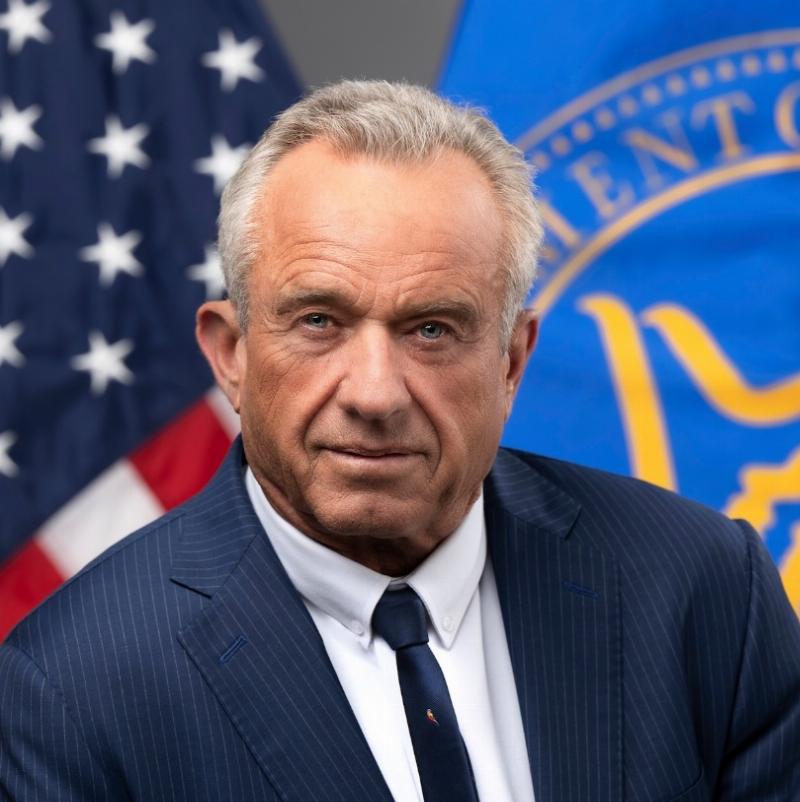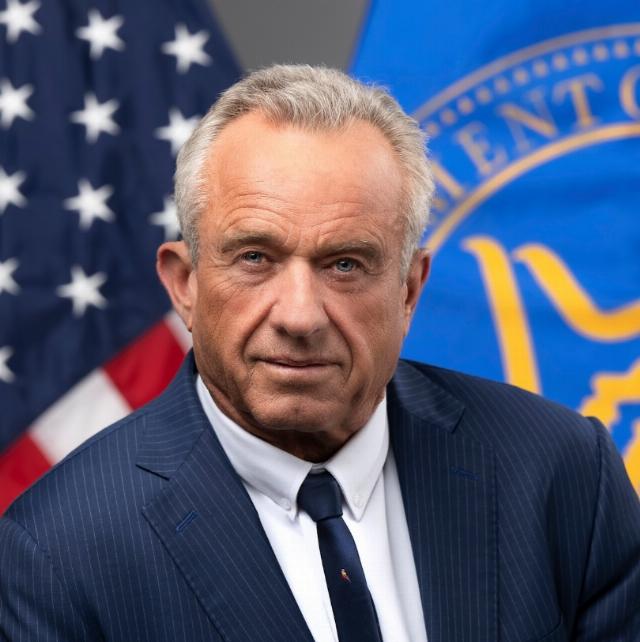


The second toughest job in the Trump administration isn’t vice president or secretary of defense or secretary of state. It’s not even attorney general, though that’s close. It’s secretary of Health and Human Services. That’s Robert Kennedy Jr.’s domain. It’s tough because Donald Trump has charged RFK Jr. with pursuing sea-change agendas in health care and nutrition. Kennedy is threatening mighty powerful interests in both arenas.
A thousand current and former HHS employees signed a letter calling for Kennedy’s “demission.” In plain English, they want Kennedy to resign, but he won’t -- and he shouldn’t. RFK Jr. has Trump’s backing. Then on September 4, Kennedy appeared before the Senate Finance Committee, where Democrats and a GOP senator piled on. A conspiracist might suggest that the letter and attacks at the hearing were coordinated.
ABC News reported on September 3:
In the letter, HHS employees said Kennedy continues "to endanger the nation's health" with examples such as the ousting of newly-installed CDC director Susan Monarez, followed by the resignations of four top CDC leaders.
Monarez clashed with Kennedy over vaccine policy. When Monarez learned that Kennedy planned to dump her, she ran to Sen. Bill Cassidy (R-LA). Cassidy is a longtime Trump antagonist. He backed off opposing Trump when Trump’s term began. Odd that he would do so, considering he voted to impeach the president for “incitement of insurrection” in February 2021. A man of principle, huh?
Cassidy is a physician. He’s up for re-election next year, which surely explains his slacking off his anti-Trump fervor. He chairs the Senate Health, Education, Labor, and Pensions Committee. He also has a seat on the Finance Committee.
Where there’s a senator up for re-election -- who holds a committee chairmanship -- oodles of campaign cash flows in.
Cassidy is regarded as one of BIO’s “strategic voices and allies” in Congress. BIO is short for “Biotechnology Innovation Organization.” It’s a trade group. It’s a behind-the-scenes organizer to oust the secretary. Its members include heavy hitters “Pfizer, Merck, Novavax, Vaxcyte, and hundreds of biotech firms that profit from regulatory insulation,” per the Public Health Policy Journal.
The Bio-Vaccine Policy Steering Committee (VPSC) is comprised of BIO member company employees. Members are charged with working reps and senators and their staffers. “Work,” so-called, involves handing out campaign checks, dispensing favors, and applying pressure. A memo leaked last April suggests that the committee is spearheading the get RFK Jr. intrigue.
Cassidy appears to be Big Pharma’s Senate point man in taking down Kennedy. On September 4, in the Finance Committee hearing at which Kennedy was testifying, Cassidy used his time to push a scare tactic. Per the New York Post, via MSN:
“I would say, effectively, we’re denying people vaccines,” Cassidy said after reading the messages from conservative radio host Erick Erickson and a friend of the Louisiana Republican, who is a doctor.
Cassidy is trying to undercut Kennedy from the Right. Citing Erickson, who’s another longtime Trump opponent, isn’t exactly the smartest way to win friends and influence people, not among MAGA legions anyway.
Open Secrets reports that from 2019-24, Cassidy received in excess of $3 million from health-related groups and individuals, clearly his largest contributions category. Pharmaceuticals were fourth on Open Secrets Top 20 list of contributions to Cassidy, with over $700,000.
As Public Health Policy Journal mentioned, Big Pharma wants “regulatory  insulation,” though not for any noble purpose. Pharmaceuticals want to dodge liability, which they received with the COVID vaccines -- immunity that was extended through 2029, thanks to whoever was calling the shots in the Biden presidency’s dying days.
insulation,” though not for any noble purpose. Pharmaceuticals want to dodge liability, which they received with the COVID vaccines -- immunity that was extended through 2029, thanks to whoever was calling the shots in the Biden presidency’s dying days.
“Stopping the spread” might not have been a Stephen Colbert or Jimmy Kimmel punchline, but it was a joke thanks to the COVID vaccines’ spectacular failures to perform as advertised. Anyone ever hear of “spike proteins?”
And Big Pharma doesn’t want anyone messing with the childhood immunization schedule. Whether or not there’s a causal link among any of a growing number of childhood vaccines and autism should be open to debate. The scientific consensus is that links haven’t been found. Perhaps autism and vaccines aren’t related, but a slew of childhood vaccines invite closer scrutiny. Autism has shot up at alarming rates in recent years. That’s just attributable to better detection?
Kennedy’s mantra is that he wants “evidence-based” outcomes to determine vaccine efficacy and safety. Science pursued honestly. That’s not pharmaceutical industry housed or underwritten research with all the dubious motives. Real science is never settled.
Kennedy has been crossing swords with Big Pharma for years. Since being sworn in as HHS chief, he’s acted with dispatch to implement change, much to the consternation of big drug company big dogs. For them, tens of billions of dollars in revenues hang in the balance. That’s not just vaccine revenues. Drug pricing is consequential, too.
A 2024 Rand report confirms that pharmaceutical manufacturers charge more for prescription drugs here than overseas. Manufacturers are paid less overseas because they must negotiate pricing with national health bureaucracies. Lower drug prices in the E.U., for example, are made up by charging U.S. consumers exorbitantly. Manufacturers say that higher U.S. prices compensate for R&D costs. In other words, U.S. consumers are being forced to subsidize drug costs across the globe.
The president signed an executive order last May aimed at bringing domestic and overseas pricing into parity. This would result in significantly lower costs to American consumers. RFK Jr. is leading this effort. Yet another reason why pharmaceuticals want him out.
Stopping the “freeloading” -- negotiated cost savings below fair market value -- by other nations takes a process. That will take time.
Nonetheless, the pressure is on drug companies to ratchet down costs to consumers here at home. Trump issued letters to pharmaceutical brass in July giving them 60 days to lower prices.
Wrote Trump to Eli Lilly CEO Dave Rickets:
"If you refuse to step up, we will deploy every tool in our arsenal to protect American families from continued abusive drug pricing practices.” Trump wrote. "I look forward to your binding commitment to each of these goals by Sept. 29, 2025, and my team stands ready to assist with implementation questions.”
Following the May executive order, the White House issued a fact sheet “outlining the steps they [manufacturers] must take to bring down the prices of prescription drugs in the United States to match the lowest price offered in other developed nations.”
Trump, as usual, is walking the talk. Pharmaceutical latitude in dumping R&D costs on Americans is ending. Said Kennedy at an August cabinet meeting:
“[W]e are deep into MFN negotiations with 14 companies,” and Commerce Secretary Howard Lutnick has also joined the efforts.
Stopping this grossly unfair business practice could cost manufacturers billions. Kennedy is no different from Trump. He means to instigate change. He favored price caps prior to becoming secretary.
Trump and Kennedy aren’t cowed. Both are savvy players. Trump intends an historic presidency. He’s aiming to change the nation’s trajectory. Overhauling health care, which vaccines and drug pricing are parts -- and, likewise, pushing huge changes in the food industry -- are pieces of a bigger picture. Trump is changing the rules. He intends for Americans to get fair deals. So does RFK Jr. Is it any wonder why the drug companies want RFK Jr. gone?
J. Robert Smith can be found at X. His handle is @JRobertSmith1. At Gab, @JRobertSmith. He blogs occasionally at Flyover.
Image: White House
